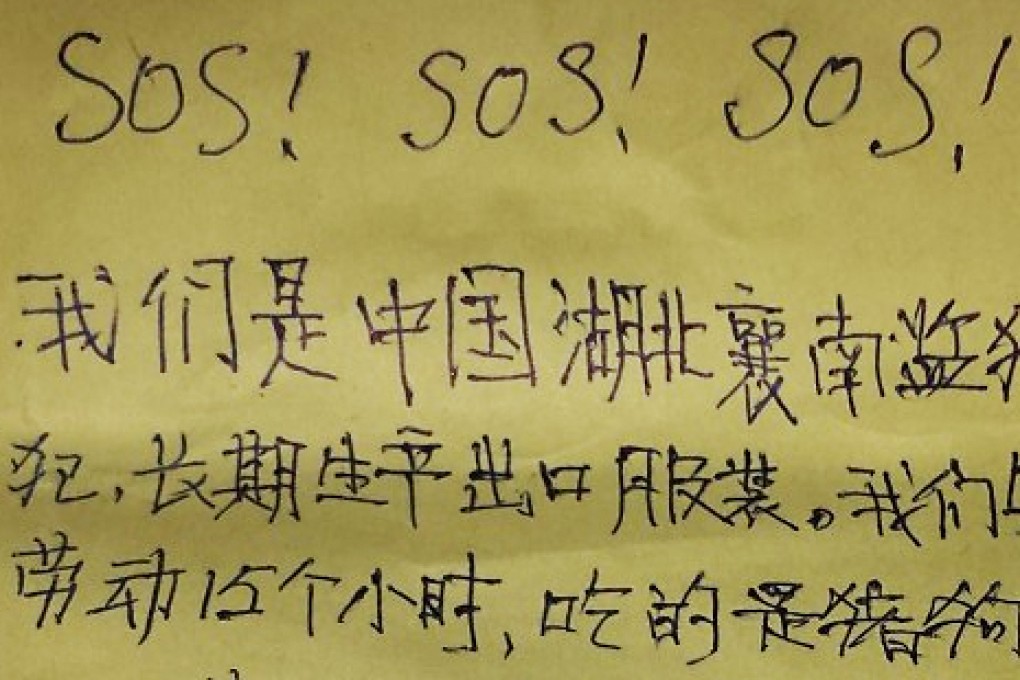Woman finds an SOS note in her trousers from a 'Chinese prisoner'
A pair of trousers purchased from a British outlet contained a note describing terrible forced labour conditions in China

A note that seems to be a cry for help from a Chinese prison inmate has been discovered inside a garment purchased at a popular UK clothing retailer.
Karen Wisinska of Northern Ireland found the note in a pair of trousers she had purchased from Primark, a British-owned Irish clothing chain.
The note was composed entirely in simplified Chinese characters except for three SOS cries written across its top.
“We are prisoners of the Xiang Nan Prison of China’s Hubei province,” the note read. “Our job is to make fashionable clothes for export. Everyday, we work 15 hours and eat food that wouldn’t even be given to dogs or pigs. We’re forced to work like oxen in the field. We call upon the international community to condemn the Chinese government for these human rights violations!”

Wisinska, who appealed to Amnesty International after translating the note, told the human rights organisation she had originally purchased the trousers in 2011 for ten pounds (HK$132) but had kept them closeted away and unworn for three years due to a broken zipper.
"I was shocked to find this note and card inside the trousers from Primark and even more shocked to discover that it appears to have been made under slave labour conditions in a Chinese prison," she said. “I am only sorry that I did not…[bring] this scandal to light much earlier.”